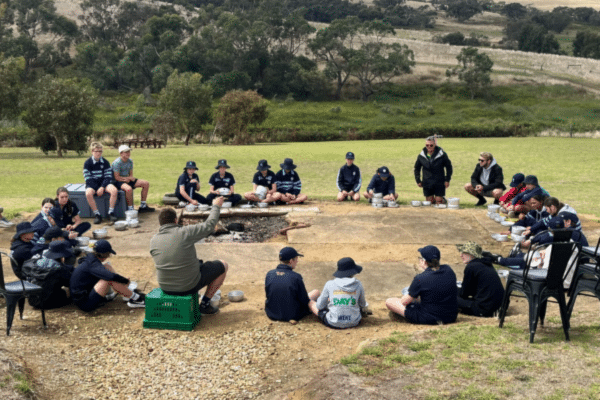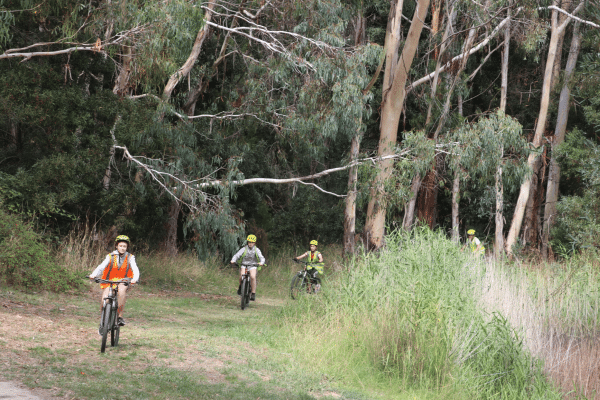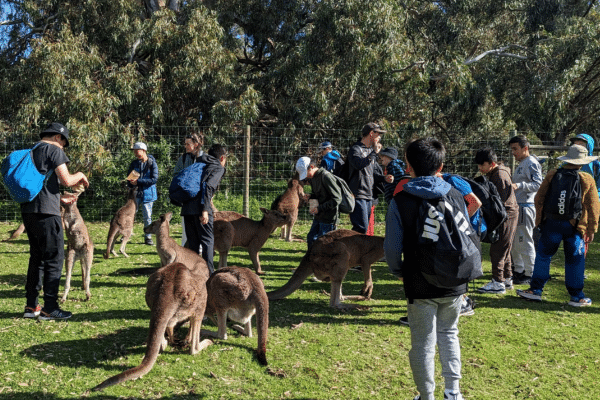12 Jan Take Learning Outside: Why You Should Incorporate Outdoor Education
 Outdoor education is a powerful and transformative approach to learning that takes students beyond the confines of traditional classrooms and immerses them in the natural world. From enhancing academic learning to fostering physical and mental well-being, outdoor education offers a myriad of benefits for students of all ages. By developing social and emotional skills, connecting with nature, overcoming challenges, and promoting creativity and critical thinking, outdoor education provides a holistic educational experience. In this article, we will explore the numerous advantages of incorporating outdoor education into learning environments and provide practical tips and strategies for seamlessly integrating it into the curriculum.
Outdoor education is a powerful and transformative approach to learning that takes students beyond the confines of traditional classrooms and immerses them in the natural world. From enhancing academic learning to fostering physical and mental well-being, outdoor education offers a myriad of benefits for students of all ages. By developing social and emotional skills, connecting with nature, overcoming challenges, and promoting creativity and critical thinking, outdoor education provides a holistic educational experience. In this article, we will explore the numerous advantages of incorporating outdoor education into learning environments and provide practical tips and strategies for seamlessly integrating it into the curriculum.
Enhancing Academic Learning through Outdoor Education Who says learning has to be confined to the four walls of a classroom? Outdoor education takes learning to a whole new level by providing hands-on experiences that bring textbook concepts to life. Whether it’s measuring the height of a tree, observing wildlife in their natural habitat, or conducting experiments in the great outdoors, students engage with their surroundings in a way that deepens their understanding and makes learning unforgettable.
Fostering Physical and Mental Well-being through Outdoor Education Let’s face it, spending hours sitting at a desk can be tedious and draining. Outdoor education offers a refreshing change of pace by getting students up and moving. Whether it’s hiking, canoeing, or participating in team-building activities, being active in nature promotes physical fitness and boosts mental well-being. The fresh air, sunlight, and scenic views do wonders for reducing stress and improving overall mood. Plus, it’s hard to resist smiling when you’re surrounded by the beauty of nature!
 Developing Social and Emotional Skills in Outdoor Education Outdoor education provides a rich environment for students to develop essential social and emotional skills. Working together to navigate challenges, students learn to communicate effectively, collaborate, and build trust. Whether it’s conquering a high ropes course, solving a problem as a team, or simply sharing stories around a campfire, these experiences foster empathy, resilience, and a sense of belonging.
Developing Social and Emotional Skills in Outdoor Education Outdoor education provides a rich environment for students to develop essential social and emotional skills. Working together to navigate challenges, students learn to communicate effectively, collaborate, and build trust. Whether it’s conquering a high ropes course, solving a problem as a team, or simply sharing stories around a campfire, these experiences foster empathy, resilience, and a sense of belonging.
Connecting with Nature: Environmental Awareness in Outdoor Education In a world facing environmental challenges, it’s crucial to cultivate a love and appreciation for nature in future generations. Outdoor education offers the perfect platform to ignite a passion for the environment. By exploring ecosystems, learning about local flora and fauna, and understanding the impact of human actions, students develop a sense of responsibility and become advocates for sustainable practices. From recycling to conserving energy, they’ll be buzzing with eco-conscious ideas in no time!
Overcoming Challenges and Building Resilience in Outdoor Education Life is full of challenges, and outdoor education equips students with the skills they need to tackle them head-on. Whether it’s scaling a rock wall or navigating a tricky hiking trail, outdoor activities push students out of their comfort zones and teach valuable lessons in perseverance, problem-solving, and adaptability. When faced with obstacles, instead of giving up, they learn to dust themselves off and try again—a valuable trait that extends far beyond the wilderness.
 Promoting Creativity and Critical Thinking in Outdoor Education The great outdoors is a breeding ground for creativity and critical thinking. Surrounded by nature’s wonders, students are inspired to explore, inquire, and make connections.
Promoting Creativity and Critical Thinking in Outdoor Education The great outdoors is a breeding ground for creativity and critical thinking. Surrounded by nature’s wonders, students are inspired to explore, inquire, and make connections.
Whether it’s identifying animal tracks, designing a natural sculpture, or crafting a story based on their outdoor adventures, outdoor education sparks imagination and nurtures curiosity. It encourages students to think outside the box and develop a lifelong love for learning.
Practical Tips and Strategies Ready to take the leap and incorporate outdoor education into your curriculum? Here are some practical tips and strategies to get started. First, identify relevant curriculum areas that can be enhanced through outdoor experiences.
Next, collaborate with local organizations or experts to plan field trips or guest speaker sessions. Don’t forget to choose activities that align with your specific learning goals and cater to different learning styles. Lastly, make the most of the experience by debriefing and reflecting with students afterwards, allowing them to connect the outdoor adventure to their academic studies.
Remember, outdoor education is not only educational but also a whole lot of fun! So, get out there, embrace the great outdoors, and watch your students thrive in ways you never imagined.
FAQ
Is outdoor education suitable for all grade levels? Yes, Beyond the Classroom offer camps for all year levels and abilities and can also offer progressive outdoor education school camps for Primary years through to Senior School years.
What are some practical considerations for implementing outdoor education? When incorporating outdoor education, it is important to consider factors such as safety, access to outdoor spaces, weather conditions, and appropriate supervision. Planning and communication with students, parents, and stakeholders are crucial to ensure a successful and enjoyable outdoor learning experience.
How can outdoor education be integrated into the curriculum? Outdoor education can be integrated into various subjects, such as science, geography, history, and physical education. Programs are tailored to specific curriculum as required drawing on content from a series and range of learning situations.

